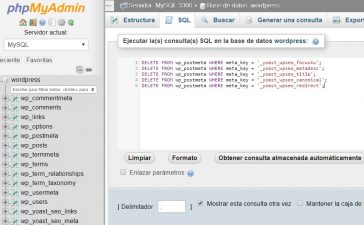If you are subscribed to newsletters or consume content on the internet, you have surely read those acronyms everywhere.
The companies and brands you’re subscribed surely have sent you lots of emails to confirm that you want to continue on their mailing list and apparently many people are in a panic about it.
This article will be focused more on the effect that this Law has on your WordPress. If you want legal advice I recommend that you contact a lawyer.
Meet the GDPR
GDPR is the acronym for General Data Protection Regulation. It is a law approved by the European Union focused on the protection of data and user privacy. It was approved in 2016 and the grace period to adapt the platforms to it was 2 years, which have already passed. The GDPR came into force this May 25, however, even some websites and platforms are not complying with it. May it not happen to you!
The regulation regarding personal data affects “Any information related to an identified or identifiable natural person”. That is, it includes name, email, IP address, email, etc.
The processing of this personal data is any operation or set of operations that are carried out with personal data, even those that are processed manually.
To comply with the GDPR you must:
- Obtain consent for actions such as the storage of electronic mail or some personal information when they comment on your website.
- Provide users with information about the data you store about them and allow them to be deleted (right to be forgotten.
- Notify users when a data breach occurred on the website, as Twitter recently requested users to change passwords.
Why should we care about GDPR as WordPress users?
The digital platforms with which we usually work are based in countries in which the regulation must be fulfilled. The visitors of your page can come from these countries, so it is preferable to comply with the rules to generate trust among the users of your page.
What happens if you decide to ignore the GDPR?
Fines to websites that do not comply with the rules are up to 20 million euros. They can also take 4% of your global income.
How does the GDPR protect WordPress?
The regulation has implications for WordPress and the add-ons are adapting to that law. Even if you collect data from users involuntarily, this law affects you.
For example, if a user comments on your blog, WordPress records the email, IP and name; The analysis tools you use gather information to be able to organize and display it, contact forms, and user records as well.
What is WordPress doing about the GDPR?
Some of the GDPR regulations are primary actions in WordPress, so the software is being updated to comply with the rules. This includes the development of tools and documentation for developers.
Plugin developers are also updating add-ons to be compatible with the law, such as Gravity Forms and Ninja Forms, which include the GDPR in the contact forms.
WordPress plugins that help you with compliance with the GDPR
The most popular option seems to be the WP GDPR Compliance add-on.
In addition to providing a useful checklist for the changes you must make manually, it also offers integrations for:
- Contact Form 7
- WooCommerce
- Native WordPress comments
With these integrations, you can enable compliance with a button click:
A second option is the WP GDPR plugin.
Give users a page where they can request their data, view them and ask for them to be deleted. It also includes add-ons for:
- Gravity Form
- MailChimp
- WooCommerce
- The Events Calendar
- Events Manager
Do you have a little clearer? Tell me how you have integrated these regulations on your website!
BONUS:
Read the definitions and the full text of the GDPR here.
Learn more about the route map for developers and GDPR on this GitHub page.
















